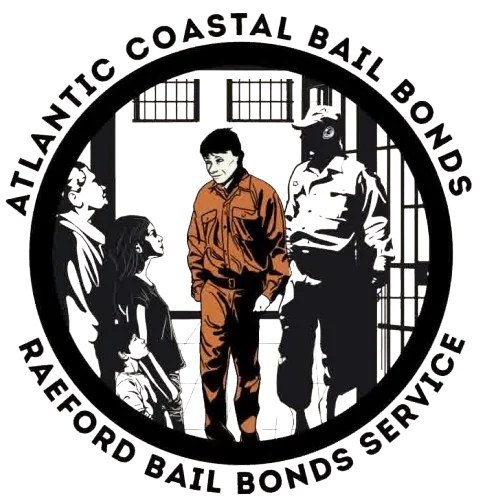The time for release can vary, as jails are often busy. Even after the bail bond is paid, there’s still a process to follow, including booking, taking a mug shot, and fingerprinting, which can take several hours. The sooner you contact us to make arrangements, the quicker you or your loved one can be released once processing is complete.
In any criminal matter, you should consult with a defense attorney. It is important that the you understand your rights.
You can often get a free consultation. Some attorneys may even allow you to make payment arrangements to pay overtime. Your bail agent is not allowed to offer legal advice.
If you miss a court date, a bench warrant will be issued for your arrest. You will be rearrested and taken to jail on a charge of failure to appear, and you will need to post bond again to be released. In some cases, you may also have to post a new bond for your original charges in addition to the failure to appear charge.
Yes, bond conditions set by the court must be strictly followed. These conditions may include restrictions such as no alcohol or drug use, not moving without notifying the court, and obeying all state and federal laws. If you violate any of these bond conditions, it could result in being returned to jail and having your bail revoked, meaning you will remain incarcerated until your court date.
If you are arrested, you have the option to release your property and/or money to anyone of your choosing. This could be a friend, relative, or even an employee of Atlantic Coastal or Raeford Bail Bonds. The person you designate to collect your money or property can sign for it at the jail on your behalf.
If you’re aware of a warrant for your arrest, you have the option to turn yourself in rather than waiting for the police to arrive at your home or workplace. After turning yourself in, you can call to find out the amount of the bail bond. For a quicker process, we highly recommend arranging your bond in advance by calling Atlantic Coastal or Raeford Bail Bonds.
Is the day following the arrest when charged with a felony the defendant is brought in front of a district court judge who (1) formally reads the allegations, (2) offers the opportunity to apply for a public defender, (3) sets the next court date and (4) considers bond modifications. Only persons accused of felonies are arraigned and required to go to 1st appearance.
The individual that is in custody during the pre-trial phase of criminal proceedings.
also referred as “Processing” is the process of fingerprinting, photographing and formally identifying persons accused of a criminal offense.
Under North Carolina General Statute 15A-534, a judicial official is required to impose at least one of the following five conditions for pre-trial release:
Under this condition, the defendant is placed in the custody of a competent person or organization that agrees to supervise them. The responsible party, which could be a family member, friend, or organization, must ensure that the defendant complies with the terms of their release and appears in court when required. The custodian is often tasked with reporting any violations of the release conditions to the court.
also referred as a Temporary Hold or 72-hour Hold. Allows a judicial official to delay setting bail for a defendant for a short period of time, typically when the safety of the alleged victim is at risk. This hold gives authorities additional time to assess the situation and ensure that proper measures are in place to protect the victim before deciding on bail conditions. In Cumberland, Hoke and Scotland County the hold is usually 48 hours.
or House Arrest is a Condition of Release. where the defendant is confined to their home and monitored using an electronic tracking device, such as an ankle bracelet. The court may allow specific exceptions for the defendant to leave the house for approved activities, such as work, school, medical appointments, or other essential obligations.
or Cosigner, is the individual who assumes financial responsibility alongside the bail bond agency on a bond contract. By signing the agreement, the indemnitor guarantees that the defendant will appear in court as required. If the defendant fails to appear, the indemnitor is liable for the full amount of the bail.
a judicial official appointed by the Clerk of Court who handles lower-level criminal and civil matters. Magistrates are often responsible for conducting initial hearings, issuing warrants, and making decisions on bond or bail for criminal defendants. In Cumberland, Hoke, and Scotland County, the magistrate typically sets the bond for criminal defendants, determining the conditions of pre-trial release based on factors like the nature of the crime and the defendant’s history.
Under this Condition of Release, the magistrate requires the defendant to post a specific financial amount, either in cash, through collateral, or by using a bail bond agency, before they can be released from pre-trial detention. The bond serves as a guarantee that the defendant will appear in court as required. If the defendant fails to appear, they forfeit the bond, and the full amount becomes payable.
Under this condition of release, the defendant is not required to post bail upfront. However, a bail amount is still set, and the defendant only becomes financially liable for that amount if they fail to appear in court or violate the terms of their release.
Under this Condition of Release, the accused signs an affidavit or document promising to attend all scheduled court dates without having to post bail or provide a financial guarantee.

© 2024. All rights reserved | Atlantic Bail Bonds